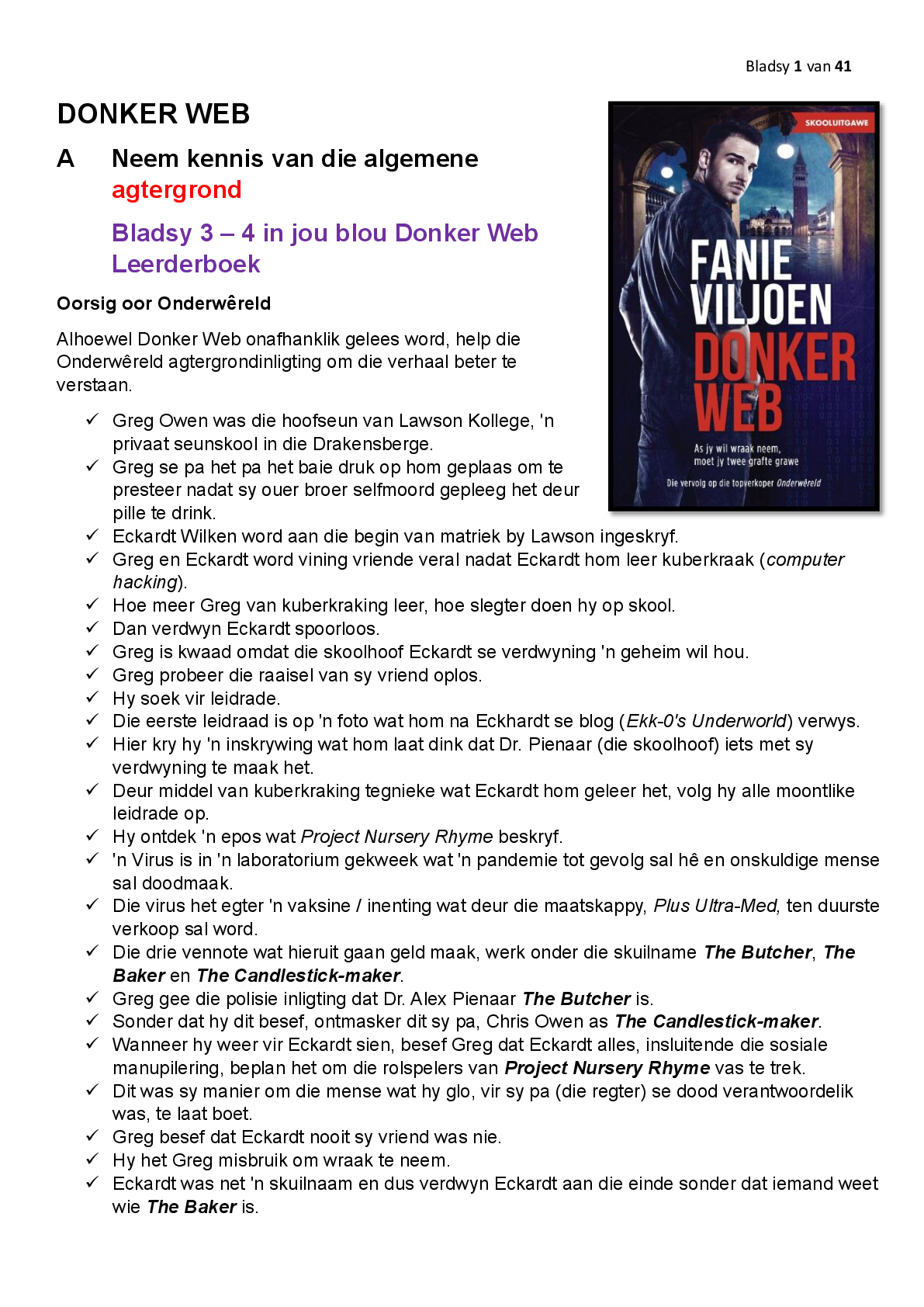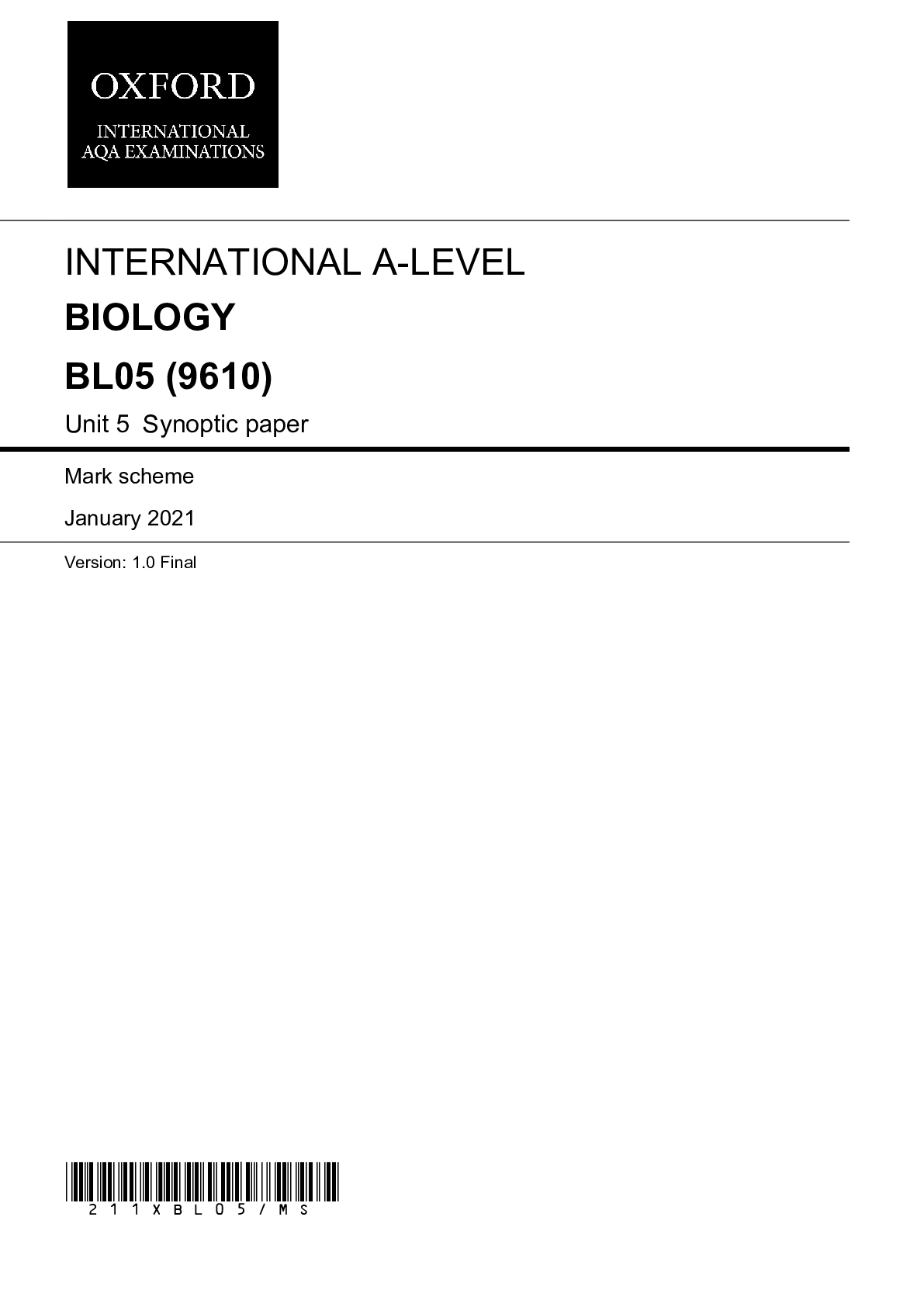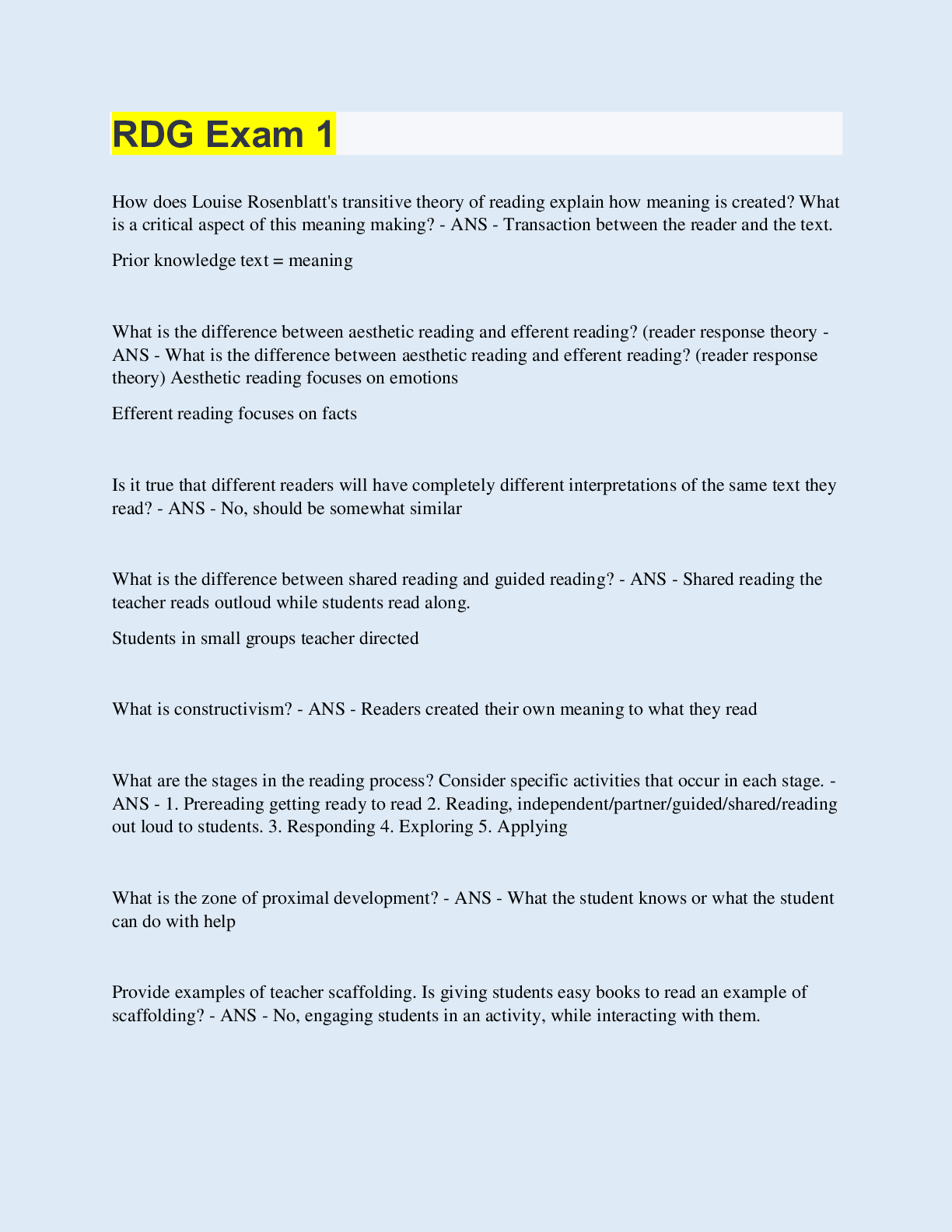
Donker web opsomming van eksaminator notas
$ 7

INTERNATIONAL A-LEVEL BIOLOGY BL05 (9610) Unit 5 Synoptic paper Mark scheme January 2021 Version: 1.0 Final
Literary Studies > QUESTIONS & ANSWERS > RDG Exam 1 (All)
RDG Exam 1 How does Louise Rosenblatt's transitive theory of reading explain how meaning is created? What is a critical aspect of this meaning making? - ANS - Transaction between the reader and the ... text. Prior knowledge text = meaning What is the difference between aesthetic reading and efferent reading? (reader response theory - ANS - What is the difference between aesthetic reading and efferent reading? (reader response theory) Aesthetic reading focuses on emotions Efferent reading focuses on facts Is it true that different readers will have completely different interpretations of the same text they read? - ANS - No, should be somewhat similar What is the difference between shared reading and guided reading? - ANS - Shared reading the teacher reads outloud while students read along. Students in small groups teacher directed What is constructivism? - ANS - Readers created their own meaning to what they read What are the stages in the reading process? Consider specific activities that occur in each stage. - ANS - 1. Prereading getting ready to read 2. Reading, independent/partner/guided/shared/reading out loud to students. 3. Responding 4. Exploring 5. Applying What is the zone of proximal development? - ANS - What the student knows or what the student can do with help Provide examples of teacher scaffolding. Is giving students easy books to read an example of scaffolding? - ANS - No, engaging students in an activity, while interacting with them. Explain schema theory and tell in what ways schema theory impacts reading comprehension. - ANS - How we organize our thoughts and apply them to what we are currently learning Explain the limitations of oral reading. What is round robin reading? - ANS - some students don't want to read out loud to a class. not a true picture of their reading abilities. students focus more on their turn rather than what they are reading. How can you tell if reading instruction is effective? - ANS - if your students are responding Declarative knowledge - ANS - what the strategy does What is the relationship between reading and writing? - ANS - Different sides to the same coin How is learning oral language different from learning to read and write? Which is more difficult to do? - ANS - Learn by association What is the purpose of assessment? - ANS - Collecting data about students forming instructions. Describe the features of retellings as an assessment tool. - ANS - Oral, written What is the purpose of the Graded Word List in an informal reading inventory (Ekwall)? - ANS - To guide passage reading word recognition What are language cueing systems? - ANS - 1) graphonics 2) Syntax 3) semantics word meaning What is the cloze procedure and what does it assess? - ANS - Comprehension What information about a student's reading ability does an informal reading inventory provide? - ANS - Independent, instructional, frustration levels What are norm-referenced tests? - ANS - Standardized tests Explain the difference between formative and summative assessments. Give an example of each. - ANS - Formative: is quizzing while in the process of learning a concept. Summative: testing at the end final exam Why is high stakes testing problematic? - ANS - Narrowed curriculum What is a student doing if, while reading, says house for home - ANS - Semantics How can you determine how difficult a text is for your students to read? - ANS - Use a checklist , student ability Books used for a literature focus unit should be at what reading level? - ANS - Instructional Procedural knowledge - ANS - how they use the strategy Conditional knowledge - ANS - when to use the strategy [Show More]
Last updated: 3 years ago
Preview 1 out of 3 pages

Buy this document to get the full access instantly
Instant Download Access after purchase
Buy NowInstant download
We Accept:

Can't find what you want? Try our AI powered Search
Connected school, study & course
About the document
Uploaded On
Oct 15, 2022
Number of pages
3
Written in
All
This document has been written for:
Uploaded
Oct 15, 2022
Downloads
0
Views
100
Scholarfriends.com Online Platform by Browsegrades Inc. 651N South Broad St, Middletown DE. United States.
We're available through e-mail, Twitter, Facebook, and live chat.
FAQ
Questions? Leave a message!
Copyright © Scholarfriends · High quality services·